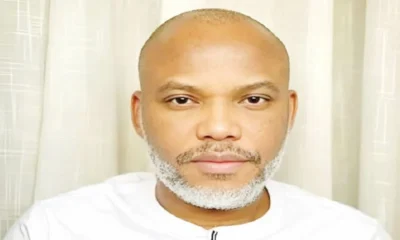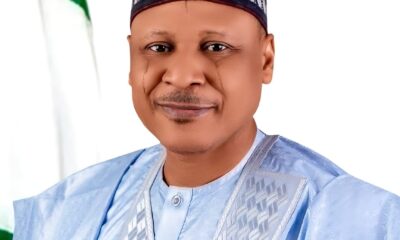Education
LAW SCHOOL: Oborevwori approves financial assistance for Delta indigenes
Delta State Governor, Rt. Hon. Sheriff Oborevwori has approved the year 2022/2023 Financial Assistance for Delta State indigenes in the seven Nigeria Law Schools across the country.
Oborevwori’s approval is coming on the heels of the recent approval of year 2022/2023 bursary award to over 30,000 students of Delta State origin in tertiary institutions in Nigeria.
The Governor’s approval is contained in a statement signed by the Executive Secretary, Delta State Bursary and Scholarship Board, Dr Godfrey Enita and made available to newsmen, in Asaba, on Friday.
“It is our pleasure to announce to the general public, particularly Deltans that His Excellency, the Governor of Delta State, Rt. Hon. Sheriff F. Oborevwori has graciously approved the year 2022/2023 Financial Assistance to Delta State indigenes in the seven Nigeria Law Schools across the country.
“This approval is sequel to the recent approval of year 2022/2023 bursary award to over 30,000 students of Delta State origin in tertiary institutions in Nigeria.
“It is important to note that this remarkable approval is in line with His Excellency’s MORE agenda, which is poised towards advancing the already existing human and infrastructural development of Deltans.
“There is no doubt that Governor Oborevwori is not only committed to the delivery of quality governance to Deltans, but has also matched his words with actions by advancing, through providing human capital development that has direct impact on the lives of Deltans.
“Governor Oborevwori is working and Deltans are happy,” Enita stated.
Education
Federal Government Denies Approving History Textbook Without Igbo Section
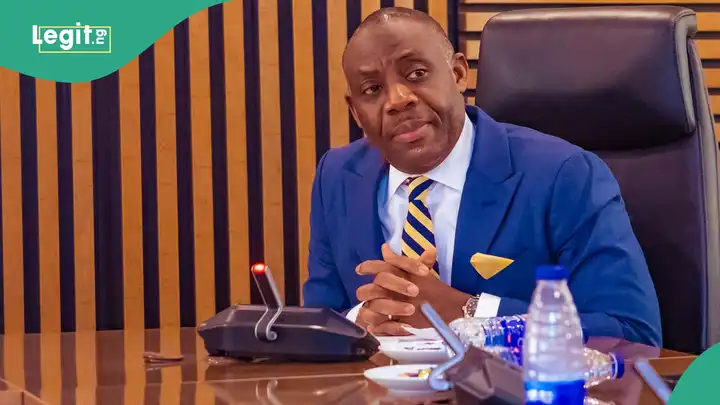
The Federal Ministry of Education has dismissed claims that it approved the “Living History” textbook, which reportedly excluded Igbo content Officials confirmed the book was never submitted to the National Educational Research and Development Council (NERDC) and is not on the list of approved instructional materials The Ministry urged schools and parents to disregard misinformation, stressing that only authorized textbooks reflect Nigeria’s cultural diversity and national values
The Federal Ministry of Education has denied approving the “Living History” textbook, which reportedly excluded Igbo content. As reported by Dailytrust, officials clarified that the book was not authorized for use in any Nigerian school.
In a statement issued by the Director of Press and Public Relations, Boriowo Folasade, the Ministry stressed that “Living History” had never been submitted to the National Educational Research and Development Council (NERDC).
The Council is the statutory body responsible for reviewing, evaluating, and approving instructional materials under the national curriculum.
As a result, the Ministry confirmed that the book was neither recommended by NERDC nor included on the official list of approved History textbooks.
The Ministry explained that consultations with NERDC leadership and a review of officially endorsed materials confirmed that “Living History” did not form part of the approved instructional resources for schools nationwide. Warning against misinformation Parents, teachers, school proprietors, and administrators were urged to disregard speculation, misinformation, and what the Ministry described as “emotionally charged narratives” surrounding the book. Officials warned that unapproved materials could undermine curriculum standards and negatively affect teaching and learning outcomes. “All approved textbooks strictly comply with the national curriculum and reflect Nigeria’s rich cultural diversity, shared history, and core national values, while promoting inclusivity, balance, and unity,” the statement noted.
Call for responsible discourse Folasade further appealed to the public to support responsible discourse, reject divisive misinformation, and verify the approval status of educational materials through official channels before adoption.
“The public is encouraged to consult NERDC for verified information on approved textbooks. Education thrives on truth. Unity thrives on understanding,” the statement added.
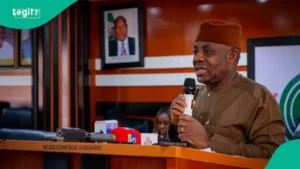
Ministry urges schools and parents to reject misinformation on unapproved textbooks. Photo credit: Tunji Alausa/x Source: Twitter
FG addresses claim it abandoned Nigerian students in Morocco Legit.ng earlier reported that the Federal Government has rejected reports suggesting that Nigerian students studying in Morocco under a bilateral scholarship scheme were abandoned or denied funding. Education authorities described the circulating claims as misleading and deliberately crafted to distort public understanding.
In a post on its official social handles, the Education ministry clarified that every beneficiary admitted into the Bilateral Education Scholarship programme before 2024 received payments up to the approved 2024 budget cycle. Any outstanding delays were linked to fiscal adjustments currently being resolved through engagements between the education and finance ministries. Education Minister Dr Maruf Tunji Alausa confirmed that no fresh bilateral scholarship awards were issued from October 2025 onward. Documents circulating online claiming otherwise were described as unauthenticated and designed to discredit government policy. According to the ministry, the decision to discontinue government-funded overseas bilateral scholarships followed a policy assessment which showed that Nigerian universities, polytechnics and colleges of education now possess the capacity to deliver similar academic programmes locally. Source: Legit.ng
Education
FG Opens Applications for 2026 PTDF-Funded Overseas Scholarship

The Federal Government has opened applications for the 2026 Petroleum Technology Development Fund (PTDF) Overseas Scholarship Scheme.
The announcement in a post on X (formerly Twitter) by the Office of the Special Adviser to the President on Social Media, Dada Olusegun, said the programme offers Nigerian postgraduate students the opportunity to study abroad.
According to the post, successful applicants will pursue studies in the United Kingdom, Germany, France and Malaysia under the fully funded scholarship scheme.
“FG has announced the commencement of applications for 2026 Petroleum Technology Development Fund (PTDF) Scholarships overseas,” the post stated.
Details published on the PTDF scholarship portal show that the scheme is open to MSc and PhD candidates in disciplines relevant to the oil and gas sector. Benefits include full tuition, return air tickets, accommodation, living allowances, health insurance and bench fees where applicable.
The agency said the initiative is designed to strengthen local expertise in the energy sector.
“The 2026 Overseas MSc and PhD Scholarships provide access to world-class training, research facilities, and global expertise, while developing indigenous capacity in Nigeria’s oil and gas sector,” PTDF said.
For MSc applicants, eligibility requirements include a minimum of a Second Class Lower (2.2) degree or higher, completion of the National Youth Service Corps (NYSC) programme, computer literacy, and at least five O’Level credits, including English Language and Mathematics.
PhD applicants are also required to submit a research proposal of no more than five pages detailing their objectives, methodology and data collection strategy.
PTDF explained that PhD candidates studying in the United Kingdom will follow a split-site arrangement, conducting research between the College of Petroleum and Energy Studies, Kaduna (CPESK), and selected partner universities, including Robert Gordon University, the University of Strathclyde and the University of Portsmouth.
The agency noted that the scholarship is highly competitive and selection will be strictly merit-based.
“Only candidates who demonstrate outstanding merit and suitability will be considered,” the statement said.
Applicants will be assessed based on academic performance, quality of research proposals, professional memberships and the relevance of their chosen fields to the oil and gas industry.
PTDF also warned that applicants must verify their National Identity Number (NIN) before applying, adding that multiple submissions or falsified documents would lead to automatic disqualification.
Interested candidates are to apply online via scholarship.ptdf.gov.ng for approved programmes at PTDF partner institutions.
The deadline for applications is February 27, 2026.
Education
Report all forms of sexual pressure from lecturers – Rector tells students
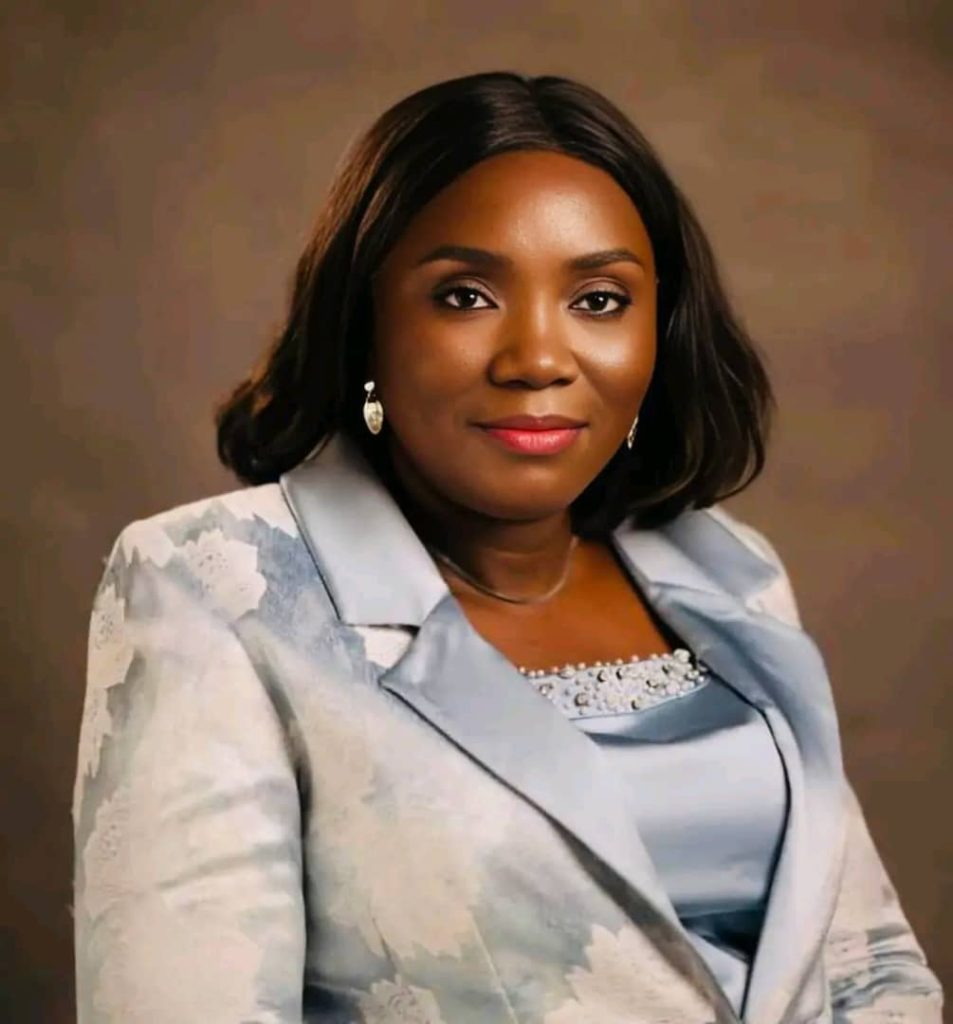
The Rector, Federal Polytechnic Ukana, Akwa Ibom State, Mrs Eduma Essien, has encouraged students of the institution to report any form of sexual pressure or harassment from lecturers to the management or the Anti-Sexual Harassment Unit of the Polytechnic for appropriate investigation and sanctions.
Essien also cautioned students against engaging in examination malpractices, cultism or any form of antisocial behaviors, adding that the school will not condone any of the vices.
She also charged them to be conversant with the polytechnic’s policies, rules and regulations.
Speaking during the 12th Orientation Exercise for newly admitted students on Tuesday, the rector also stated that the sale of handouts is prohibited in the polytechnic, saying students should only purchase approved textbooks.
Essien assured the students that as long as she remains at the helm of affairs, learning would be made easy in an environment that promotes discipline, safety and academic excellence.
She said, “I encourage you to report any form of sexual pressure from lecturers to the management or the Anti-Sexual Harassment Unit. This institution frowns at the exchange of gifts for marks.
“We also have zero tolerance for cultism and examination malpractice because we want to produce graduates who can confidently defend their certificates anywhere.”
The rector explained that students of the polytechnic would not only graduate with academic certificates but acquire practical skills through the institution’s mandatory skills acquisition program.
According to her, the world is increasingly focused on what individuals can offer to society.
Essien equally encouraged the students to cooperate with their lecturers by diligently carrying out their assignments to make teaching and learning effective and rewarding.
The orientation exercise also featured resource persons who delivered lectures on various aspects of the polytechnic system. They include the Registrar, Mr Idhigu Lucky, the Bursar, Sir Emmanuel Esomonu, the Polytechnic Librarian, Mr Ehikioya Uduebor, among others.
-
Business1 year ago
US court acquits Air Peace boss, slams Mayfield $4000 fine
-

 Trending1 year ago
Trending1 year agoNYA demands release of ‘abducted’ Imo chairman, preaches good governance
-

 Politics1 year ago
Politics1 year agoMexico’s new president causes concern just weeks before the US elections
-

 Politics1 year ago
Politics1 year agoPutin invites 20 world leaders
-

 Politics1 year ago
Politics1 year agoRussia bans imports of agro-products from Kazakhstan after refusal to join BRICS
-
Entertainment1 year ago
Bobrisky falls ill in police custody, rushed to hospital
-
Entertainment1 year ago
Bobrisky transferred from Immigration to FCID, spends night behind bars
-
Education1 year ago
GOVERNOR FUBARA APPOINTS COUNCIL MEMBERS FOR KEN SARO-WIWA POLYTECHNIC BORI









